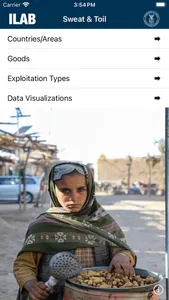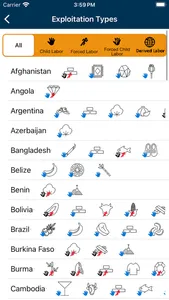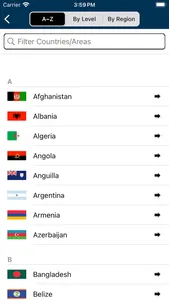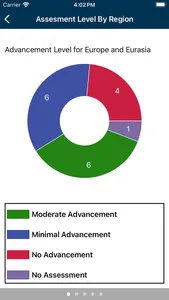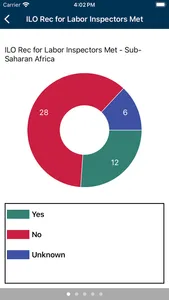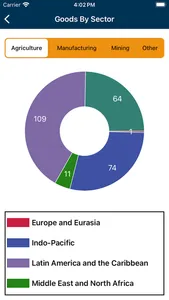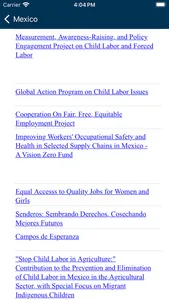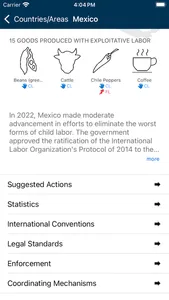Sweat & Toil: Child Labor, Forced Labor, and Human Trafficking Around the World is a comprehensive resource developed by the U.S. Department of Labor (USDOL) documenting child labor and forced labor worldwide. Data and research in this app are taken from USDOL’s three flagship reports: Findings on the Worst Forms of Child Labor; List of Goods Produced by Child Labor or Forced Labor; and List of Products Produced by Forced or Indentured Child Labor. This app fits these three information-packed reports the size of a phone book in the palm of your hand. Seven things you can do with this app are:
• Check countries’ efforts to eliminate child labor
• Find child labor data
• Browse goods produced with child labor or forced labor
• Review laws and ratifications
• See what governments can to do end child labor
• Check out updates USDOL’s projects to combat child labor and forced labor
• Discover data visualizations on goods produced with exploitative labor by sector and region, statistics on working children, regional progress on child labor, and regional labor inspectorate capacity
Using this app can be a starting point to empower yourself with knowledge about child labor or forced labor around the world. Anyone with an interest in these issues – governments, businesses, academics, civil society, and consumers – can use it as a source of information to begin asking questions, taking action, and demanding change
• Check countries’ efforts to eliminate child labor
• Find child labor data
• Browse goods produced with child labor or forced labor
• Review laws and ratifications
• See what governments can to do end child labor
• Check out updates USDOL’s projects to combat child labor and forced labor
• Discover data visualizations on goods produced with exploitative labor by sector and region, statistics on working children, regional progress on child labor, and regional labor inspectorate capacity
Using this app can be a starting point to empower yourself with knowledge about child labor or forced labor around the world. Anyone with an interest in these issues – governments, businesses, academics, civil society, and consumers – can use it as a source of information to begin asking questions, taking action, and demanding change
Show More
